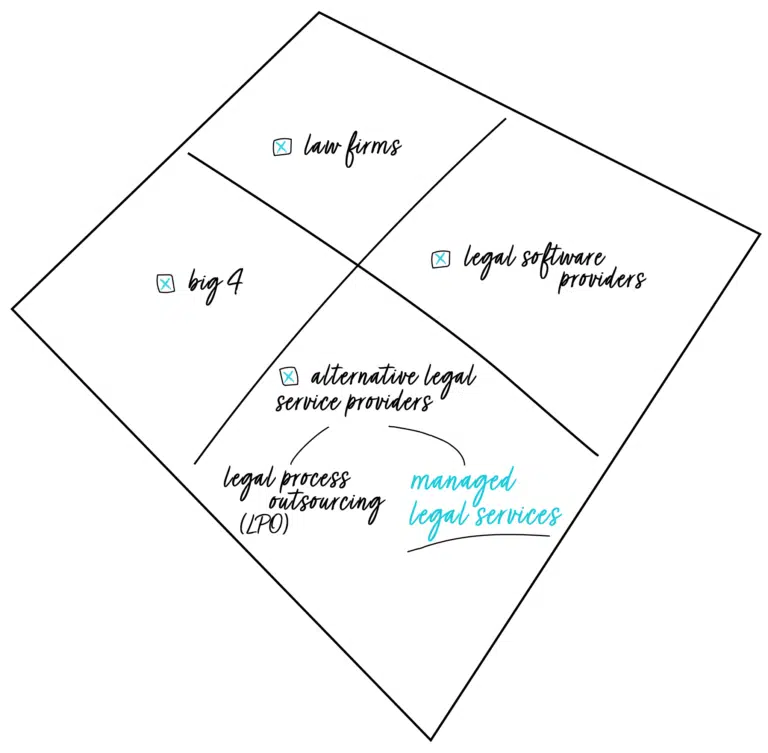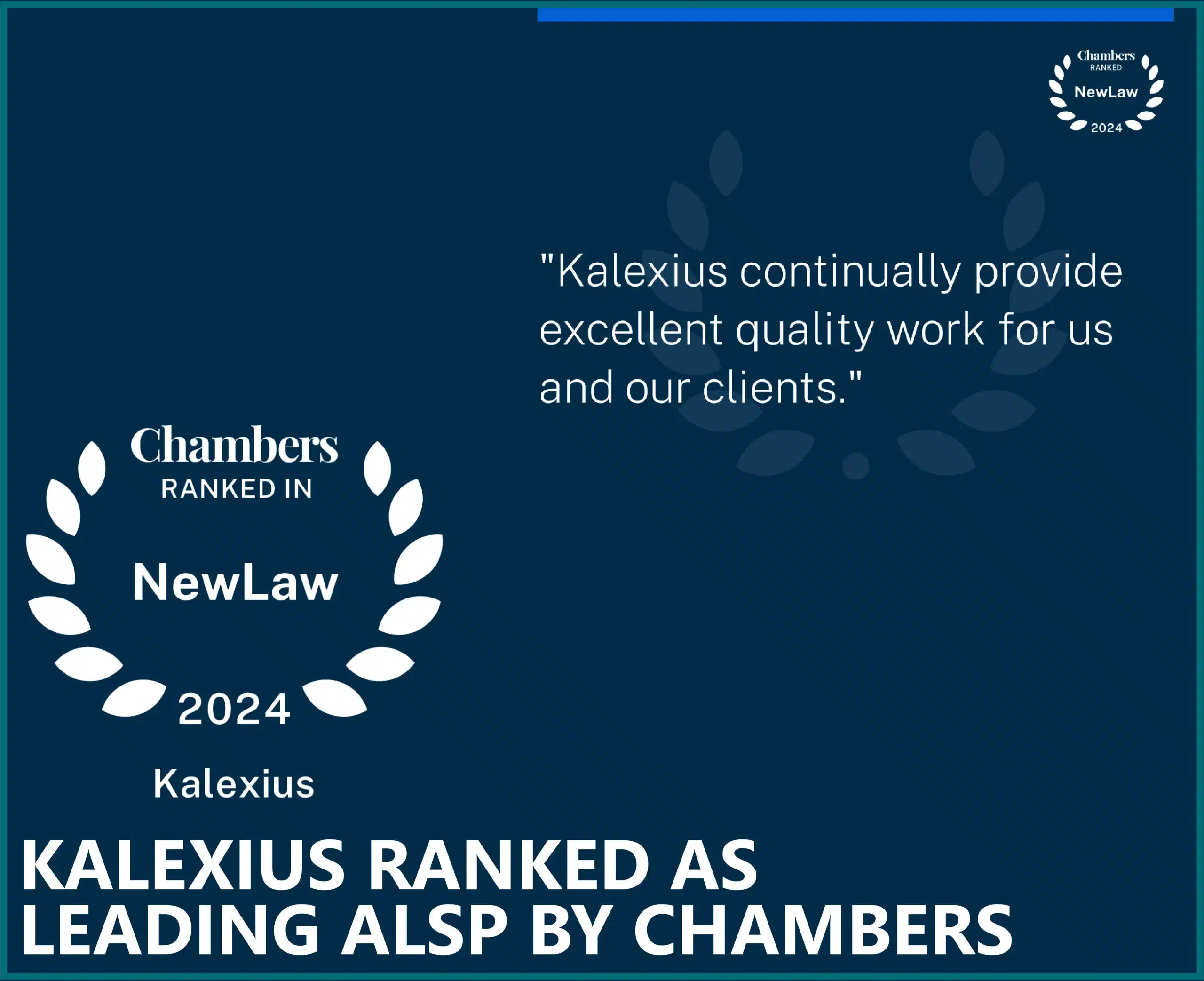
Legal services come in many shapes and forms; traditional law firms, the Big 4, legal software providers and “Alternative Legal Service Providers” or “ALSPs”, including managed legal service providers.
Although traditional law firms still hold on to the biggest chunk in the market, alternative legal service providers such as managed legal services companies are gaining ground due to their business model focused on bringing maximum value to the client.
A Thomson Reuters survey found that ALSPs had grown by 27 percent between 2015 and 2017, with global annual revenues for 2017 estimated at $10.7 billion. That translates to a 12.9 percent compound annual growth rate over the two-year period*.
What are Alternative Legal Service Providers?

ALSPs handle work ranging from low-value, low-risk tasks to complex legal projects where risk is higher. The sector includes staffing agencies and Managed Legal Services.
MLS are defined by a deeper involvement and a vested interest in the outcome of a project.
Let’s take contracting as an example. When a legal department needs extra resources to deal with contracts negotiations, they can use a staffing agency to hire a lawyer on a temporary basis. While the lawyer handles day-to-day operations, the legal department must still oversee the overall project management, human resources, technology access…
With Managed Legal Services, the whole negotiation process is outsourced to the provider who works in lieu of the legal department to get the contracting done with the counterparties, including execution and archiving.
It is a holistic approach which not only tackles a narrowly defined legal process but also takes into account at said process interacts with all other aspects and solves the underlying problem or goal (e.g. contract risk in this example).
Hence the name; it’s about taking ownership of a project and managing a legal service end-to end from development to delivery and reporting.
MLS providers can bridge a gap in the current legal market by taking on high-value, volume-intensive projects at a lower cost while law firms can focus on complex litigation and legal projects. The aim is to coexist, not take over.
How it works
Managed Legal Service providers take on some of the work that is being performed in-house. It can be a short project or a chunk of work transferred on a permanent basis.
The Managed Legal Service provider will then use their expertise to deliver optimal results at a lower cost.
Not all work should be outsourced; projects such as legal risk management are managed better in-house. However, areas such as contracting are routinely and successfully outsourced to alternative legal service providers thanks to three key pillars.
1. Optimize human resources
Find the right mix of junior/senior and onshore/offshore resources
As legal departments grow, the “right person for the right task” rule often gets lost in the shuffle of successive department restructuring. Some legal departments simply do not have the right resources for specific tasks and allocate them to the closest skills match. A MLS provider can tap into their pool of specialists and come up with the exact right mix in terms of skills and cost.
Increase team morale
A number of in-house lawyers sometimes suffer from a lack of recognition for doing work that is not considered “bet-the-company” but “run-the-company” such as contracting, IP and compliance. Run-the-company work can also be assigned on top of a massive workload of high-risk issues such as M&A. Assigning lower-risk work to a dedicated external team allows the in-house lawyers to focus on business-driving matters while the managed services team can focus on and excel in a clearly defined mission.
2. Optimize processes
Identify areas of improvement for legal work
It usually takes a fresh pair of eyes to see what could be done differently. Managed Legal Service providers have access to tools and expertise in-house departments may not have – Legal Operations professionals, project managers, data analysts – allowing them to dig deep in legal processes. The result is usually a new and innovative way of managing the work using fewer resources.
Know how to implement the improvements
It’s often easier said than done! Managed Legal Service providers have dedicated staff trained in project management to complete the transformation journey from old processes to new processes.
3. Use technology if required
Managed Legal Service providers know how to choose the right technology to bring value to the process. This is the last step: technology should only be implemented on top of robust foundations i.e. healthy, motivated teams and well-defined processes.
What makes Managed Legal Service providers different is an unrivalled expertise built over years of trial and error in different industries and cultures.
Where do the cost savings come from?
A better resource mix
Alternative legal service providers often take on work previously handled by senior in-house lawyers and assign it to more junior resources (supervised by seniors) offshore.
Doing more with less
Process efficiency and the right technology lead to significant cost reductions.
Flexibility
We don’t think about this often yet it can yield even more savings than the first two features. A lot of legal work is seasonal (think about corporate housekeeping) or comes in big waves due to external factors (compliance with new regulations, M&A). When fixed costs become flexible costs, outsourcing means paying for resources only when they are needed.
*Thomson Reuters Legal Executive Institute, Alternative Legal Service Providers 2019: Fast Growth, Expanding Use and Increasing Opportunity, Jan. 2019


